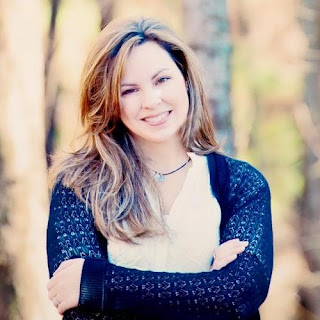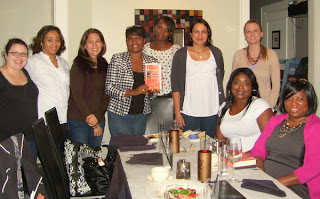I am so excited to be able to finally post the following review! It is my very first published book review. Please check it out in the online edition of the November's Buckhaven Lifestyle Magazine.
The New Voice of Southern Fiction: Kimberly Brock
Remember when you first read Harper Lee, Flannery O’Connor or Terry Kay? Prepare to feel that way again when you experience Kimberly Brock’s “The River Witch.” In a recipe as perfect as Granny’s biscuits, “The River Witch” provides everything you love about Southern fiction with an edge of Southern Gothic. Family, faith and resentment mix with love and loss, broken bodies and souls, and a stranger in a strange place. Add to this mix some mythology, fable and folktale and you will find a story that stays with you long after the final page.
After a car accident ends her career with the Atlanta ballet, Roslyn Byrne retreats to her Mama’s house. A miscarriage drives her to seek further seclusion and refuge at one of Georgia’s mystical Sea Isles, Manny’s Island. The small island’s inhabitants are each recovering from a death in their community as well. A death that places everyone at a crossroad in life and ties them all to the house Roslyn is renting for her recovery. As in any small community, a stranger brings whispers and in Roslyn’s Byrne’s case, those whispers claim that she is responsible for the sudden abundance of the alligators in the marshes. The novel’s spitfire, 10-year-old pumpkin-growing protagonist, Damascus, claims Roslyn has called the alligators up to feed on all the broken hearts. Brock weaves magic, love and music into a community’s journey from despair to redemption during the course of one long summer.
In this era of zombie and vampire overload, don’t let the title fool you. When asked about the possible confusion, Brock stated that she “didn’t change the title because the women in the book call to question moral actions. People use witch as a derogatory term, but these women bring healing to one another and their communities.” While you may have heard stories of Southern women and their communities, you haven’t heard one quite like this.
“The River Witch” was included on the summer reading lists of Deep South magazine and the Huffington Post. Kimberly was this year’s AJC Decatur Book Festival Local Prose keynote speaker and is the blog network coordinator for the She Reads national book club.
You can contact Kimberly Brock on Goodreads, Twitter, Facebook or kimberlybrockbooks.com. Her website lists her upcoming events, and be sure to check out the section with a corresponding playlist for “The River Witch.” She resides north of Atlanta with her husband and three children and is working on her second novel.









